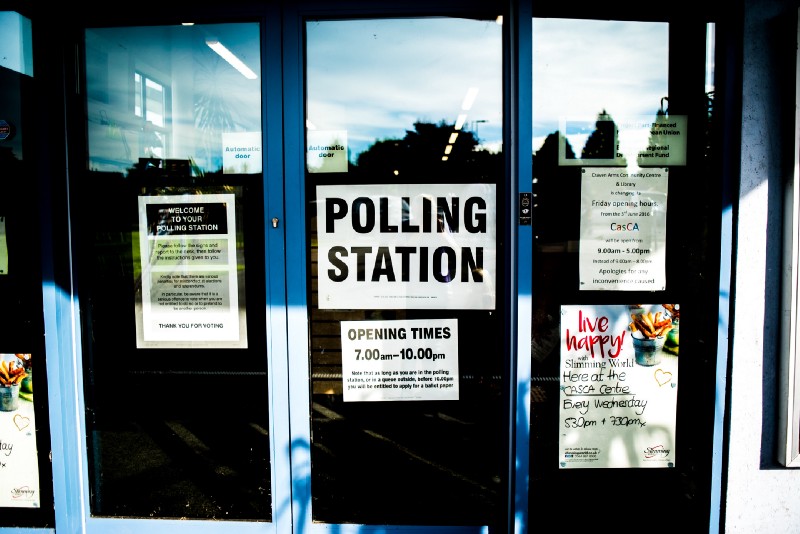When It Comes to the Future of Money, Who Do You Trust?
When It Comes to the Future of Money, Who Do You Trust?
As a career economist, it seems to me that the current debate about cryptocurrencies ignores the most fundamental questions. Sensational stories about price distract attention from critical issues, that need to be addressed: Why do we need non-sovereign currencies? What good can they do, and for whom? Why now, of all times? And what are the risks?
Before we answer any of these questions, an important and often overlooked distinction must be made: not all cryptocurrencies seek to replace state-issued, or fiat, currencies. Some cryptocurrencies, bitcoin foremost amongst them, are based on an anti-establishment, even anarchistic worldview- but this is by no means an inherent element of digital currencies. It must be recognized that state-issued fiat currencies are highly useful and have helped us build prosperous, efficient economies. They will continue to play an essential role in national economies, but in an era of rapid globalization, geographical borders are increasingly irrelevant to the flow of information, and dotted lines on maps are becoming equally irrelevant to the flow and exchange of value.

The international monetary system is becoming increasingly strained, partly due to it becoming subordinated to national political policies by means of sanctions and ever-widening and extensive enforcement. Economic forces are also at work. The dominant currencies in international payments have usually been those of countries which dominated international commerce and trade. However, even as the U.S. dollar remains the dominant currency in finance, the weight of the U.S. in international trade and global GDP is shrinking. This dissonance has spurred initiatives to find alternatives to the existing dollar-centric financial architecture.
As global economic activity finds ever-more-creative ways to circumvent the limitations of the existing monetary framework, the need for a truly global digital currency becomes increasingly evident. Enter decentralized currencies. And while we can’t quite predict the future, an intriguing possibility emerges:
Since the governing algorithm of a cryptocurrency is totally transparent and rules-governed, combining it with a sensible amount of human discretion can have the possibility to create a truly unbiased store of value and medium of exchange, which can assure currency holders of the underlying value of their holdings. Participants in such an economy need no longer speculate on the outcome of uncertain political decisions, driven by interests which may not coincide with their own.
Properly designed, non-sovereign, non-private currencies can exist alongside national currencies, operating on a global scope where needed and gracefully stepping aside when fiat money fills its traditional role. Rather than expect cryptocurrency to replace fiat currency, then, we should focus on letting crypto coins deliver the advantages they were designed to deliver:
Global, non-government-issued currencies could save users time, money and complications. Transfers, including cross-border payments, could become cheaper, quicker and simpler. The need for currency conversions, often costly and cumbersome, will be reduced, and in some cases, eliminated. And the day fast approaches when programmable “Smart Money” will allow the public to specify or limit its uses, and make possible productive and creative activities not currently feasible.
But the world does not require a new form of currency in order to enjoy these practical benefits. In fact, most money is already digital, and financial institutions can already deploy these efficiencies across their centralized platforms. Truthfully, we must look elsewhere to find justification for a new currency: Not in the technical advantages but in its ability to form a global, governed currency, a framework which can operate independently of any global government or central bank.
After all, the intrinsic value of a currency relies on who, or what, we trust to govern it.

We were raised and taught to trust national central banks and governments to manage the value of our currencies. That trust has not always been deserved, to the detriment of society. Recent events once again illustrate that there is no guarantee that good governance is always assured. Perhaps we can also learn to trust technology-enabled decentralized governance, in situations where our current, familiar yet limited governments cannot operate.
The special claim of decentralized currency is in the ability to encode a monetary model and handover governance to the consensus of its holders. With such a framework in place, we can imagine a global currency, free from the considerations of any single nation-state or group of decision makers, capable of serving as a store of value and medium of exchange for an increasingly global economy, comprised of international products and services.
Reviewing the news from this past year and a half, the potential advantages are clear. “In the aftermath of World War II, the United States set about building a global, rules-based economic order,” Adam Posen wrote recently in Foreign Affairs. “At the heart of that order, it put the liberal values of free trade and the rule of law. Over the next seven decades, the order, backed by U.S. power and bolstered by its growing legitimacy among other countries, prevented most economic disputes from escalating into mutually destructive trade wars, let alone military conflict… Today, that order is under threat… If the United States continues its retreat from economic leadership, it will impose serious pain on the rest of the world—and on itself.”
As The Economist recently wrote: “America’s control of the dollar-based payments system, the backbone of global commerce, has been weaponised. ...The boss of an Asian central bank says in private that it is time to prepare for the post-American era. “
Wise leadership and good decisions cannot be taken for granted from modern governments. Changing political winds—even personalities—can easily damage the economic environment, to the detriment of all. A governance system less prone to shifting political fashion seems worth exploring. Modern technology provides us the means to mitigate governance weaknesses beyond the constraints of the nation-state. Operating with the consensus of their stakeholders, decentralized currencies represent a step away from narrow interests determined by geography, to a global scope.
It’s not that much of a stretch. In the last ten or fifteen years, we’ve seen a barrage of new technologies revolutionize every facet of our lives, from the way we care for the sick to the way we order food. Isn’t it time technology addressed our monetary management as well? Establishing an unbiased global digital currency, based on a technology that assures decency in governance and alignment of interests, would be a valuable achievement.
True, there is a risk in using a new currency. But there’s also risk in not using a new currency and costs in relying on the old and imperfect ones to meet our evolving needs... So while many cryptocurrencies have also demonstrated their riskiness, we now have the know-how and the technology to make them better, safer, and less volatile.
Whether we like it or not, cryptocurrencies are here. They can’t be uninvented or ignored. Instead of fearing or praising them, let’s focus on fashioning them into useful tools that help us solve our problems and unlock new opportunities.



